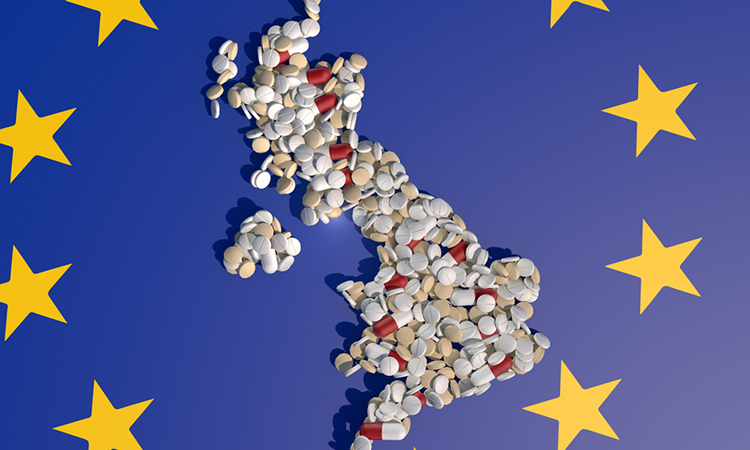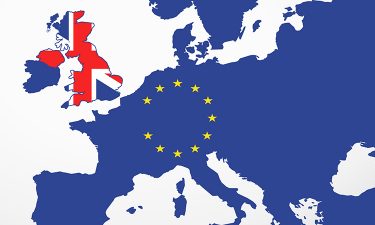Post-Brexit product supply: which way next for pharma?
Posted: 18 September 2020 | Cecilia Avram (Arriello) | No comments yet
Cecilia Avram details the requirements for pharma companies post-Brexit and provides practical pointers on minimising the disruption to cross-border product availability as new rules come into force.


The life sciences industry could be forgiven for being distracted by COVID-19 over the last six months – not least for potential disruption to medicine supply at a critical time for public health internationally. However, there is another significant source of upheaval looming for the sector in Europe, in the form of Brexit and its practical implications for cross-border product movement, as well as ongoing regulatory administration.
In March, the European Medicines Agency (EMA) updated its guidelines1 for pharmaceuticals marketing authorisation holders (MAHs), providing new clarity on what they must do to maintain continuity of supply of UK-registered products in Europe once the Brexit transition period ends on 31 December.
Preparing for change
Requirements include transferring marketing authorisation as well as pharmacovigilance operations to the EU by the end of 2020 where these are currently established in the UK. If medicinal products are made in the UK and exported to the EU, companies will need an import licence. Medical device companies will face similar adjustments to ensure continuity of product availability in key markets.
Even six months on, no formal allowance has been made for COVID-19 to push back any of the deadlines, so time is running out to meet the new requirements. If a manufacturer’s batch release site was located in the UK and medicines are to be sold in EU, for instance, the appropriate variation must be submitted for affected products and backlogs of variations to registrations are likely to build over the coming months as companies rush to submit their changes to the UK authority. All of which means that leaving action until the last minute is risky and unwise.
The new guidelines apply to all MAHs for all products registered in the UK. So how consequencial is all of this, logistically?
Redrawing borders


For affected MAHs, switching authorities/procedures could trigger a whole series of actions that need to be taken. These include the submission of variations, as UK-marketed products become nationally registered. Consequently, from January, the UK Medicines and Healthcare products Regulatory Agency (MHRA) will have to put in place its own set of rules which will be applicable for new national procedures emerging from MRP and DCP.
New import/export rules and licences and manufacturing/supply-chain requirements will also apply as borders are reinforced between the UK and the EU. As of 1 January 2021, the UK will no longer be part of the EU Customs Union. This means that customs formalities required under Union law will apply to all goods entering the customs territory of the Union from the UK and the same in reverse.
At the same time, EU businesses wishing to import from or export to the UK will need an Economic Operators Registration and Identification (EORI) number to navigate customs formalities. EORI numbers issued by the UK will no longer be valid in the Union from January. Businesses based in the UK wishing to import into the Union will need to receive an EU EORI number or appoint a Union customs representative where applicable. From January, existing ‘economic operator’ authorisations will cease to be valid across the border, too.
New rules, new standards
…no formal allowance has been made for COVID-19 to push back any of the deadlines”
There will be other logistical considerations as well. Starting next year, the EU Customs Union and the UK will be two separate regulatory and legal spaces. This means that all products exported from the Union to the UK will have to comply with UK rules and standards and will be subject to any applicable regulatory compliance checks and controls on imports. Similarly, all products imported from the UK to the Union will need to comply with Union rules and standards and will be subject to all applicable regulatory compliance checks and controls on imports for safety, health and other public policy purposes. For biological products, for instance, testing will need to be carried out by the relevant competent authority.
All of this will translate to additional complexity, administration, cost and delay along the supply chain.
Checklist of actions
So where are companies with all of this now and what is left to do?
Some organisations, that have been proactive, have already switched the competent authority they are registered with in anticipation of the end of the Brexit transition period. Others, which have been side-tracked by COVID-19 disruption for example, now need to resume their focus driven by a new sense of urgency. Finding an available submission slot with the new target authority is likely to become increasingly challenging the closer we get to the end of the year, so the pressure is mounting.
There are also implications for pharmacovigilance operations. Where UK activities have previously been covered by a qualified person (QPPV) on mainland Europe the UK will now need its own equivalent, located nationally and reporting to a domestic equivalent of the European EudraVigilance system (for managing and analysing information on suspected adverse reactions to medicines authorised or being studied in clinical trials in the territory).


Although this last requirement has seen the deadline pushed back until 2021, the mandate stands and companies will need to take action now to line up the right person and establish the right systems and processes on the UK side of the border.
Pharmaceutical companies are likely to need help with at least some of this – whether with reframing the regulatory strategy for their products and marketing authorisation; gaining detailed insights into the specific import requirements for each country; managing package variations or authority submissions; or simply supplementing resources to cope with the scale of change project triggered by Brexit.
As autumn sets in and the year-end looms larger, the following checklist may prove useful as organisations review their current status and determine next steps to ensure they do not run into delays or gaps in supply as the Brexit transition period draws to a close:
- Submit an application to change the location of EU product registration/authorisation, if this has previously been in the UK, to a continuing member state. This should be a priority as authority submission slots will grow scarcer as the end-of-year deadline nears.
- Find/appoint/train a QPPV specifically for the UK market – distinct from the qualified person serving the EU – and establish an operation and system for UK-based pharmacovigilance reporting to whatever the national equivalent of the EU EudraVigilance database will be.
- Check for potential supply-chain issues as import licences and special documents become a requirement. This will be important to maintain continuity of supply and minimise the risk of products becoming stuck in a warehouse somewhere, due to insufficient paperwork or non-compliant labelling.
About the author
Cecilia Avram is Senior Regulatory Affairs Manager at Arriello, provider of market access, regulatory affairs and pharmacovigilance solutions.
References
- Brexit-related guidance for companies – European Medicines Agency [Internet]. European Medicines Agency. 2020 [cited 16 September 2020]. Available from: https://www.ema.europa.eu/en/about-us/brexit-uk-withdrawal-eu/brexit-related-guidance-companies
Related topics
Brexit, Distribution & Logistics, Drug Supply Chain, Industry Insight, Regulation & Legislation, Supply Chain
Related organisations
European Medicines Agency (EMA), UK Medicines and Healthcare products Regulatory Agency (MHRA)









